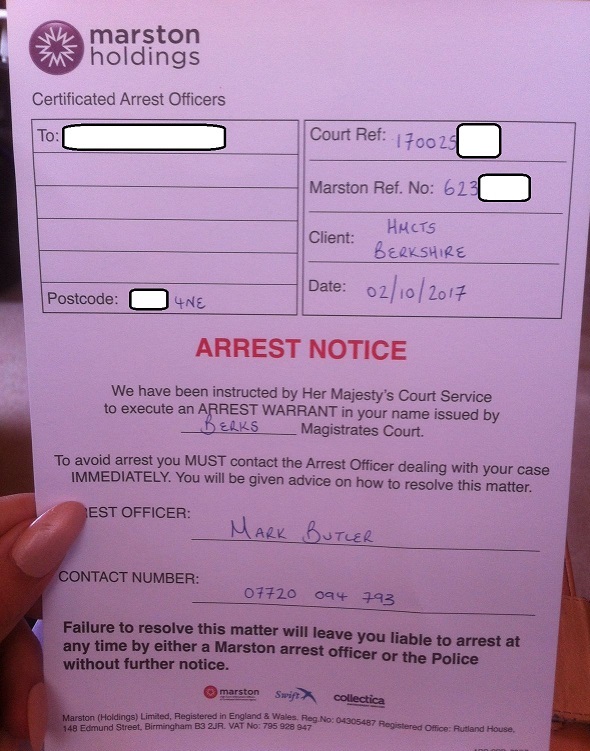Bailiff Says He Has An "Arrest Warrant"
Commercial bailiff companies cannot arrest, restrain, or transport prisoners. Marston Recovery, officially Marston (Holdings) Limited, and CDER Group Limited use police-like terminology to deceive people into thinking bailiffs can make arrests.
It is a play on words related to the 'no-bail warrant' legislation under section 117 of the Magistrates Courts Act 1980, which only allows for a warrant to endorse bail. Private bailiff companies unofficially use this method to track down debtors with unpaid court fines for commercial gain. They place intimidating documents in letterboxes to scare recipients into calling the bailiff on the provided mobile number and reveal their new address and mobile number.
Do not respond to these documents; never disclose your current address.
In 2016, a Marston bailiff escalated matters by attempting to 'arrest' a debtor at their doorstep, leading to a fight in which the bailiff was injured. The bailiff called the police, but the debtor was acquitted on self-defence grounds because the defence proved bailiff had no authority to use violence in the execution of a Warrant as this is a breach of Paragraph 24(2) of Schedule 12 of the Tribunals Courts and Enforcement Act 2007.
When a magistrates' court wants to summon an offender's attendance, it issues a warrant to a uniformed constable under Section 83 of the Magistrates’ Courts Act 1980 to arrest the offender and bring them before the court.
Example "Arrest Notice" created by Marston (Holdings) Limited. Note: There is no such thing in UK law as "Certificated Arrest Officers", which is a play on "Cerificated Enforcement Agent" a prescribed individual under section 63 of the Tribunals Courts and Enforcement Act 2007.


